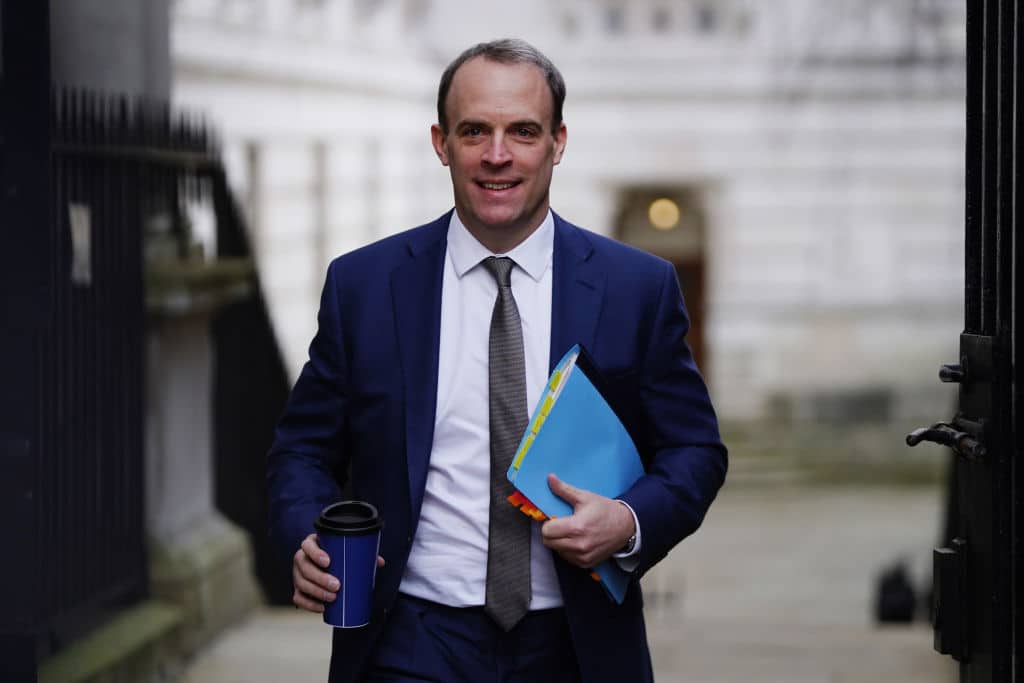Dominic Raab. (Peter Summers/Getty)
The Foreign Office has apologised for its “misguided” ban on queer diplomats 30 years after the discriminatory policy was scrapped.
The ban was first put in place in 1967 over fears that gay diplomats would be vulnerable to blackmail due to their fear of being outed.
The policy was eventually scrapped in 1991 following years of pressure from LGBT+ activists, unions and campaign groups.
Sir Philip Barton, under-secretary at the Foreign, Commonwealth and Development Office (FCDO), apologised for the policy in a message circulated to staff on Monday (5 July).
“The ban was in place because there was a perception that LGBT people were more susceptible than their straight counterparts to blackmail and, therefore, that they posed a security risk,” Barton said.
30 years ago, the FCDO lifted the ban on LGBT+ people serving openly in the diplomatic service.
Today @PhilipRBarton has issued an apology to those who were affected by the ban. The FCDO is now a proud & inclusive employer of LGBT+ people. pic.twitter.com/PKW7dPFSr4
— Foreign, Commonwealth & Development Office (@FCDOGovUK) July 5, 2021
“Because of this misguided view, people’s careers were ended, cut short, or stopped before they could even begin.
“And the diplomatic service undoubtedly deprived itself of some of the UK’s brighter and best talent.
“I want to apologise publicly for the ban and the impact it had on our LGBT staff and their loved ones, both here in the UK and abroad.”
Dominic Raab praises LGBT+ Foreign Office staff for ‘professionalism and dedication’
He continued: “In the 30 years since the ban was lifted, the FCDO has made great progress in becoming a proud and inclusive employer of LGBT people, and a champion for LGBT rights around the world.”
Barton went on to pay tribute to all current and former LGBT+ staff who have worked for the Foreign Office, praising them for helping to change the service “while representing their country with professionalism and dedication”.
“I thank them for the contributions they have made, and continue to make.”
Foreign secretary Dominic Raab said he is “grateful” to the UK’s LGBT+ diplomats “who so brilliantly represented our country and promote our values around the world”.
He added: “As co-chair of the Equal Rights Coalition, we are working with 41 partner countries to tackle discriminatory laws and prejudice globally.
“The UK champions LGBT rights because we believe freedom and tolerance are a source of strength in communities at home and abroad.”
The Foreign Office first introduced its ban on queer diplomats due to the social climate at the time.
Because homosexuality was not commonly accepted, it was believed that gay or bisexual diplomats would go to extreme lengths to avoid being outed, leaving them open to blackmail.
Those fears were compounded by the high-profile cases of Guy Burgess and John Vassall.
In 1951, Burgess, who was gay, defected to the Soviet Union, while Vassall was arrested in 1962 after he fell victim to a “homosexual honey trap”.
The Foreign Office’s policy was finally scrapped in 1991 by then-prime minister John Major.
